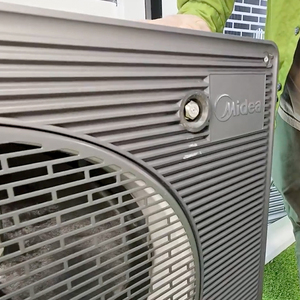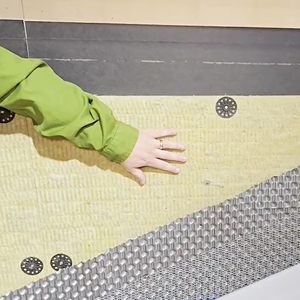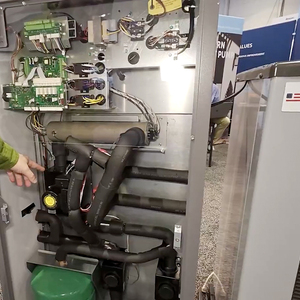I had the roof on my house replaced recently. The contractor stripped off the old roof, but did not replace the lead chimney flashing. Instead, he covered the lead flashing with black asphalt cement. He said he did that because the flashing had already been “compromised”. I feel as though the flashing should have been replaced if it were prone to leakage instead of just covering the old flashing with cement. The cement not only looks horrible, but I wonder about the long term effectiveness of it. I think the cement is just a short term solution and not the correct way to prevent leakage at the chimney. I believe the contractor should have at least given me the option of replacing the flashing before he applied the cement to the old flashing. What is the standard in the industry?
Discussion Forum
Discussion Forum
Up Next
Video Shorts
Featured Story

Discover a concrete-free foundation option that doesn't require any digging.
Highlights
"I have learned so much thanks to the searchable articles on the FHB website. I can confidently say that I expect to be a life-long subscriber." - M.K.
Fine Homebuilding Magazine
- Home Group
- Antique Trader
- Arts & Crafts Homes
- Bank Note Reporter
- Cabin Life
- Cuisine at Home
- Fine Gardening
- Fine Woodworking
- Green Building Advisor
- Garden Gate
- Horticulture
- Keep Craft Alive
- Log Home Living
- Military Trader/Vehicles
- Numismatic News
- Numismaster
- Old Cars Weekly
- Old House Journal
- Period Homes
- Popular Woodworking
- Script
- ShopNotes
- Sports Collectors Digest
- Threads
- Timber Home Living
- Traditional Building
- Woodsmith
- World Coin News
- Writer's Digest


















Replies
I think the cement is just a short term solution and not the correct way to prevent leakage at the chimney.
You are correct.
I believe the contractor should have at least given me the option of replacing the flashing before he applied the cement to the old flashing. What is the standard in the industry?
What does your contract say?
http://grantlogan.net/
I was born in a crossfire hurricane..........shooby dooby do
Thank you very much for the prompt reply. I don't have the contract with me. But I will check it tonight. The contract was a brief one and I don't recall any terms that would have covered this. I know that roofing contractors do not always know what they are getting into until the old roof is torn off and inspected. Some contracts include a clause for unforseeable repairs. It helps a consumer when the contractor gives the consumer as much information as possible. My contractor could have quoted the job both ways, with and without new flashing. Since he is in the business, he should know what the standard practice is and relate that information to me. He wasn't the lowest price contractor, so I did not expect shoddy repairs. Thanks for your advice!
In a situation like you describe, coating with plastic cement is more likely to trap water and cause leaks long term than otherwise..
A good lead flashing can out last two or three roofs, but he has already testified that it is "compromised" which could mean that he got careless or could mean that it has suffered from age and wear. Either way, it should have been replaced if it was necessary to coat it and if it was not necessary to coat it, it now needs replacement because of the coating.
That's my opine anyways, base3d on what I read from you.
Welcome to the
Taunton University of Knowledge FHB Campus at Breaktime.
where ...
Excellence is its own reward!